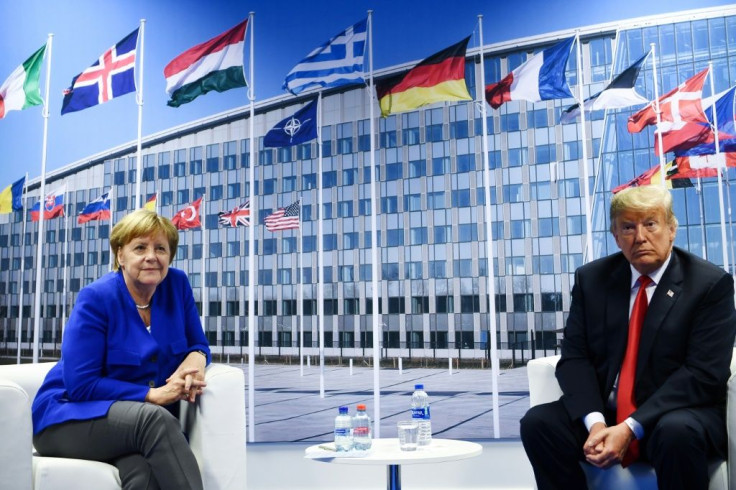NATO Probes France-Turkey Naval Incident

NATO said Thursday it has launched an official investigation into a naval incident in the Mediterranean between alliance members France and Turkey that has infuriated Paris.
France has complained vehemently about the incident in which it says one of its ships was subjected to radar targeting by Turkish frigates as it sought to inspect a cargo vessel suspected of carrying arms to Libya.
The incident is the latest flare-up in tensions between France and Turkey, which have clashed over Ankara's military operation in Syria and more recently over their roles in Libya's civil war.
The French ship Courbet, on duty as part of a NATO operation, tried to check the Tanzanian-flagged freighter suspected of breaching the UN arms embargo on Libya.
According to French officials, Turkish frigates accompanying the freighter carried out radar targeting on the Courbet three times, suggesting a missile strike was imminent.
Fellow NATO member Turkey has dismissed the allegations as "groundless", insisting its vessels only observed the Courbet and accusing the French ship in turn of a ""high-speed and dangerous manoeuvre".
French Defence Minister Florence Parly upbraided Turkey during video talks on Wednesday and Thursday with her NATO counterparts and the alliance is now probing the matter.
"We have made sure that the NATO military authorities are investigating the incident to bring full clarity into what happened," NATO Secretary General Jens Stoltenberg said after a video meeting of alliance defence ministers.
France is furious over the incident, slamming Turkey's actions as "extremely aggressive" and "unacceptable by an ally".
"This extremely serious incident must be raised and our allies share our concern," Parly told the French senate, saying eight of the NATO's 30 members had backed her intervention.
"A reflection is needed on what is happening in the alliance. We must face the abuses that are taking place there," she added.
President Recep Tayyip Erdogan's Turkey has caused repeated unease at NATO in recent years, with its involvement in Syria and Libya and by cosying up to Moscow with the hugely contentious purchase of Russian S-400 anti-aircraft missiles.
But its strategic position between Europe and the Middle East, commanding the southern shores of the Black Sea, make it an important ally that others are wary of crossing.
Moreover, formal censure of Turkey is virtually impossible at NATO, where decisions are taken by unanimity.
Relations between Turkey and France, already strained by Ankara's military offensive against Kurdish militias in Syria, soured further over its backing of the UN-recognised Government of National Accord (GNA) in Tripoli.
Turkey has supported the GNA with drones, military advisors and by sending Syrian fighters, helping turn the tide in the conflict with rebel strongman Khalifa Haftar.
Though Paris publicly denies it, France has long been suspected of favouring Haftar, whose stronghold lies in Libya's oil-rich east and who is also strongly backed by Russia.
The UN embargo was agreed as part of efforts to stem the conflict which has racked Libya since the 2011 overthrow of longtime dictator Moamer Kadhafi, but Western efforts to enforce it have struggled.
After months of diplomatic wrangling the European Union set up its own maritime mission, Operation Irini, to try to halt the flow of arms.
But while Irini has enjoyed some successes, it has struggled for resources and this week EU foreign policy chief Josep Borrell was forced to make a fresh appeal to member states for ships.
It has also faced challenges from the Turkish navy.
A Greek vessel with Operation Irini was last week prevented from inspecting the same freighter involved in the Courbet incident by its Turkish military escort.
The EU is seeking NATO support for Irini, but diplomats indicate the idea is running into opposition from Turkey.
© Copyright AFP {{Year}}. All rights reserved.




















